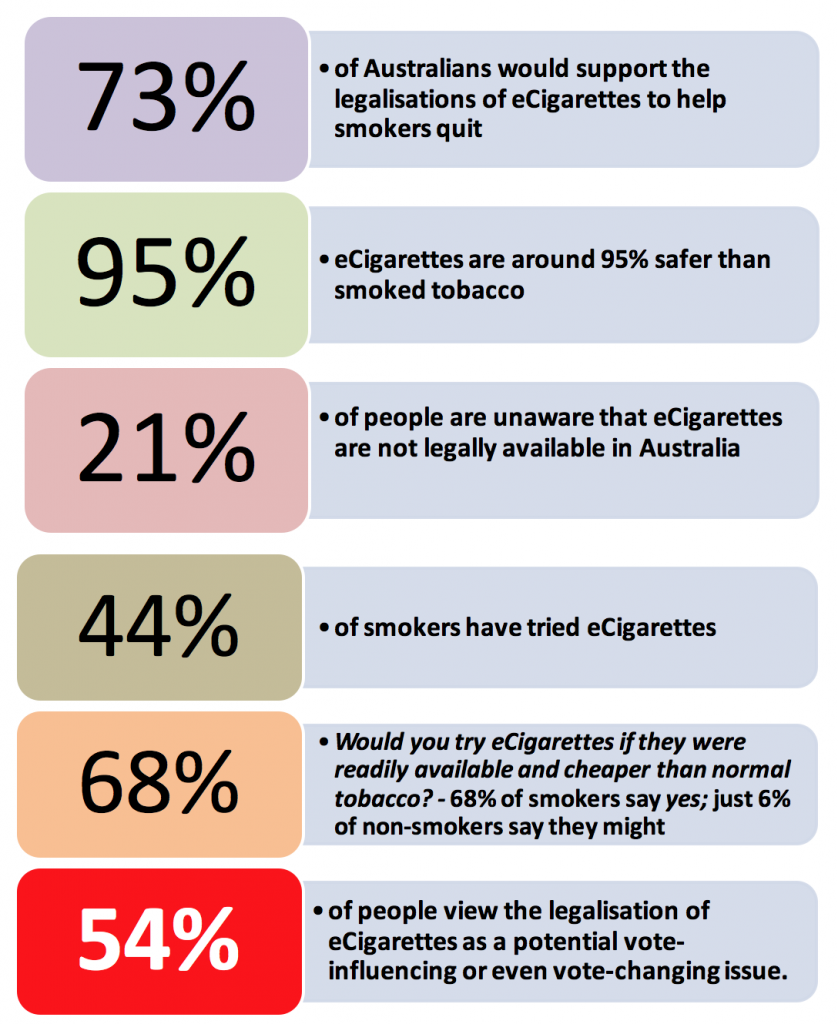
November 23, 2018: New Zealand’s Associate Minister of Health today announced plans to regulate vaping and smokeless tobacco products. The move supports “New Zealanders to be healthier by helping smokers switch to safer products”.
Meanwhile, in Australia, e-cigarettes remain unregulated and unable to help Australians looking to quit smoking by providing them a safer alternative. It’s a ridiculous position, says the Australasian Association of Convenience Stores (AACS).
“We welcomed the Government’s recent announcement to commission further research into e-cigarettes to help Australians quit smoking traditional tobacco, as these products have done overseas,” AACS CEO Jeff Rogut says.
“But this process must not take years to materialise. The opportunity to help people exists today, New Zealand has shown its willingness to adopt a progressive approach for the good of its citizens, and Australia must do the same as a matter of urgency.”
The AACS has consistently called for government to develop a legal framework for the sale and use of e-cigarettes to provide people a much safer alternative. The draconian position of a blanket ban on e-cigarettes fails to recognise the potential health benefits of these products.
“There is already scientific consensus that switching to e-cigarettes is significantly less harmful to people than traditional smoking, and there’s emerging evidence that they can be an effective stop-smoking tool as well. Anecdotally, e-cigarettes are a popular quitting option for people around the world,” Mr Rogut says.
“On the other hand, no robust evidence exists that e-cigarettes are a ‘gateway’ to smoking for young people, as the vast majority of users of these products are smokers or ex-smokers.
“It’s also understood that e-cigarettes, while significantly lower risk, are not entirely risk-free. It reinforces the urgency with which we need to develop a proper framework to govern their sale, and ensure product quality control standards are upheld.”
A Public Health England study from 2015 shows e-cigarettes are around 95% safer than conventional cigarettes. New Zealand has made e-cigarettes legally available and AACS research shows most Australians support a similar approach.
According to AACS research, the most extensive ever undertaken on the topic of e-cigarettes in Australia, 54% of Australians view the legalisation of e-cigarettes as a potential vote-influencing or even vote-changing issue. It shows that 73% of Australians would support the legalisation of e-cigarettes to help smokers quit.
“The AACS supports Australians’ right to choose and believes ready access to more, not fewer, options for people looking to quit smoking traditional tobacco is necessary,” Mr Rogut says.
Legal tobacco, on average, accounts for approximately 38% of a typical convenience store’s sales. As the number of smokers naturally declines, e-cigarettes have the potential to be a profitable category for these small businesses.
The AACS State of the Industry Report 2017 highlights the potential for convenience stores to be a destination for e-cigarettes and other quit-smoking products, given the $105 million growth in tobacco sales the channel experienced over the course of last year.
The AACS has identified several key considerations in the legalisation of e-cigarettes, including restrictions in sales to minors, ensuring they are child tamper proof, contain an ingredients list, comply with quality standards and are manufactured and sold with strict safety standards in place.
The New Zealand plan proposed clarifies that nicotine vaping liquid is covered by the Smokefree Environments Act, enables product safety requirements to be set for vaping and smokeless tobacco products, and implements a product notification system to support action when concerns arise with a product.
“E-cigarettes and other stop smoking devices can deliver real benefits to people’s health so we need a proper framework for their legal sale as a matter of urgency,” Mr Rogut says.
“The longer we wait, the greater the risk that black market operators will fill the gap with products of inferior quality that don’t meet compliance standards, as they have succeeded in doing where illicit tobacco is concerned.”
A breakdown of the key AACS research findings into e-cigarettes is included below.

Further information:
Jeff Rogut
Chief Executive Officer
Australasian Association of Convenience Stores
Ph: +61 467 873 789
Subscribe to our free mailing list and always be the first to receive the latest news and updates.
